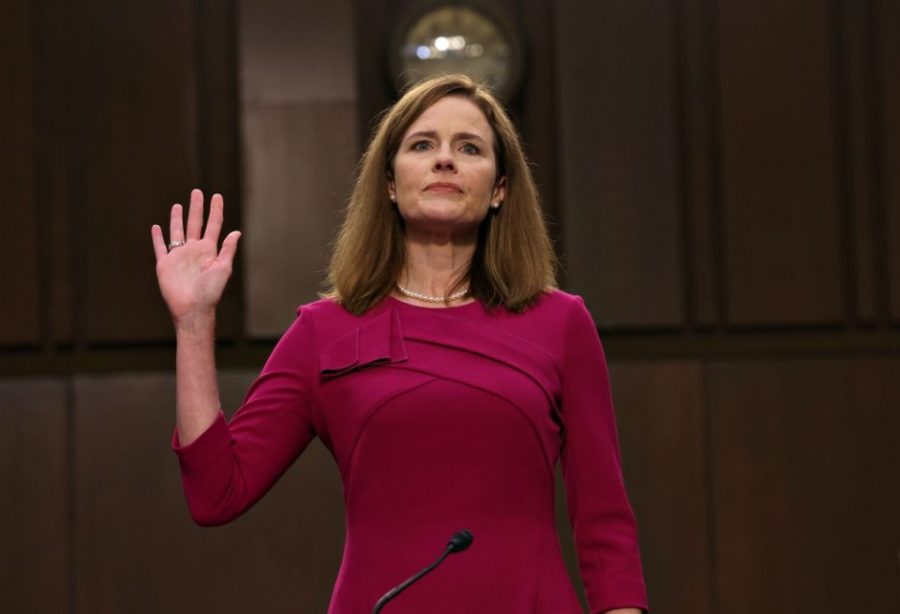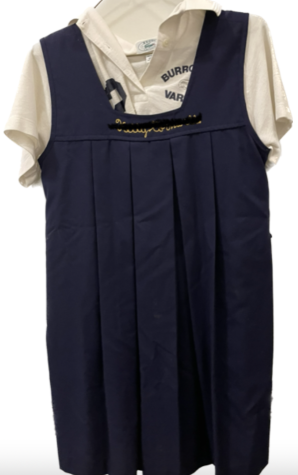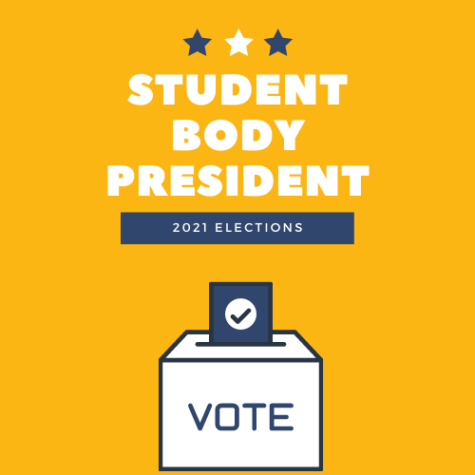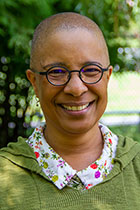The New SCOTUS Justice
November 3, 2020
In addition to the upcoming elections, and in light of Ruth Bader Ginsburg’s death, one of the most pressing issues voters are concerned about is who will be elected to fill the late Supreme Court Justice’s position. While both sides of the political spectrum disagree upon whether or not this position should be occupied before or after the November elections, President Donald Trump has made his pick. A finalist for Brett Kavanaugh’s spot in 2018, Judge Amy Coney Barrett has been a favorite among conservative evangelicals and the Republican base.
After graduating from Rhodes College magna cum laude and majoring in English literature, Ms. Barrett went on to Notre Dame Law, where she graduated in 1997 as summa cum laude and received the Hoynes Prize, the law school’s highest honor. After law school, she became a clerk for the conservative Supreme Court Judge, Antonin Scalia. Ms. Barrett then went on to join the faculty at Notre Dame Law School, attaining a nomination by the current President as a federal appellate judge on the US Circuit Court of Appeals for the 7th district, controlling Illinois, Wisconsin, and Indiana.
Though it’s unquestionable that Ms. Barrett has had an impressive and successful career, many voters are concerned that her religious beliefs could affect her decisions in court, effectively destroying the concept of the separation of the church and state. While she has been cautious in the past about communicating a strong stance in either direction, knowing that the spotlight has been on her for a potential nomination to the Supreme Court, through her law articles and court decisions, voters can study the history of her opinions. During her hearings, she avoided giving direct answers on how she would rule on major cases, which has been the norm for all nominees since Robert Bork’s failed confirmation in 1987. As Ms. Barrett did when being confirmed to the US Circuit Court of Appeals, she testified that her faith would not interfere with her ability to perform her job correctly and with a clear head.
While Ms. Barrett has openly written about her views on Roe vs. Wade, during her confirmation hearings, she declined to answer on how she might rule on the case. Still, many voters are concerned that because of her pro-life stance, she would work towards overturning the decision. When looking at the 2nd Amendment, Ms. Barrett made her stance clear in 2019 when she dissented on a case that did not allow felons who are no longer considered “dangerous” to bear arms legally. Barrett has also made her views clear on the Affordable Care Act, by criticizing Chief Justice John Roberts’ decision to uphold the act instead of striking it down. Lastly, liberal voters are concerned that the Supreme Court may now, in a six to three ratio, lean too far to the right, as the late Ruth Bader Ginsburg was known as a dyed-in-the-wool progressive.







